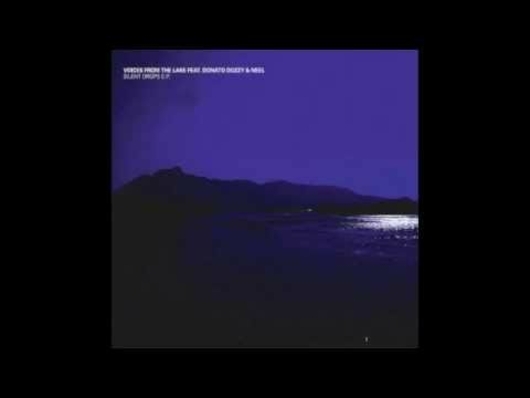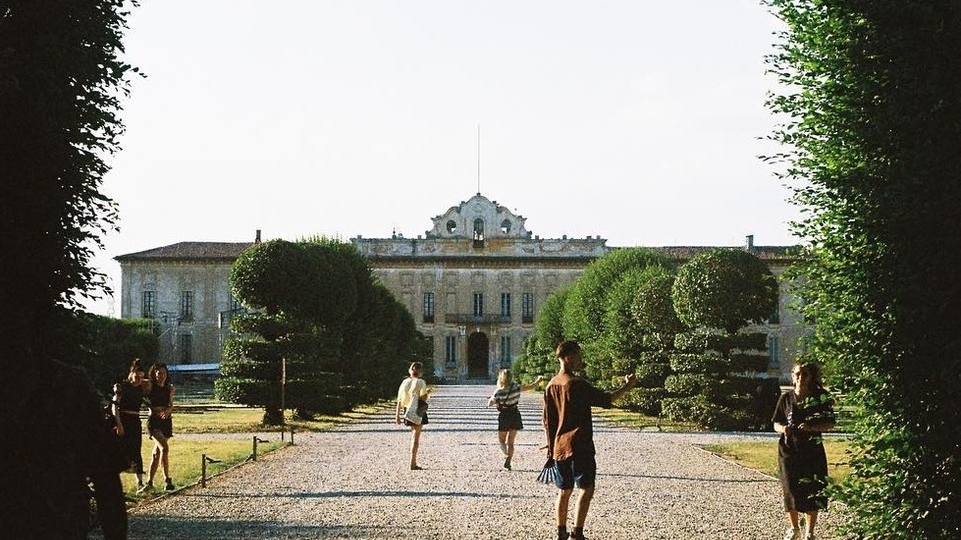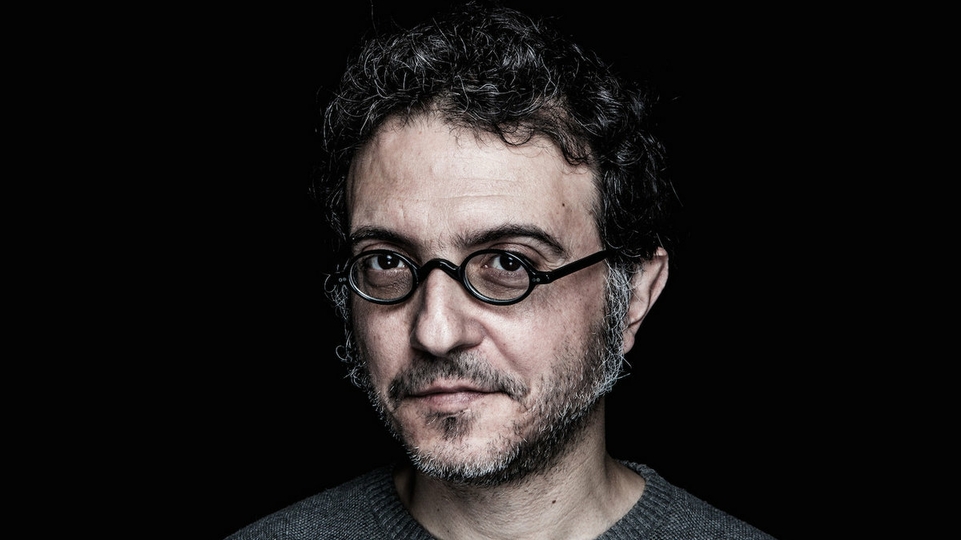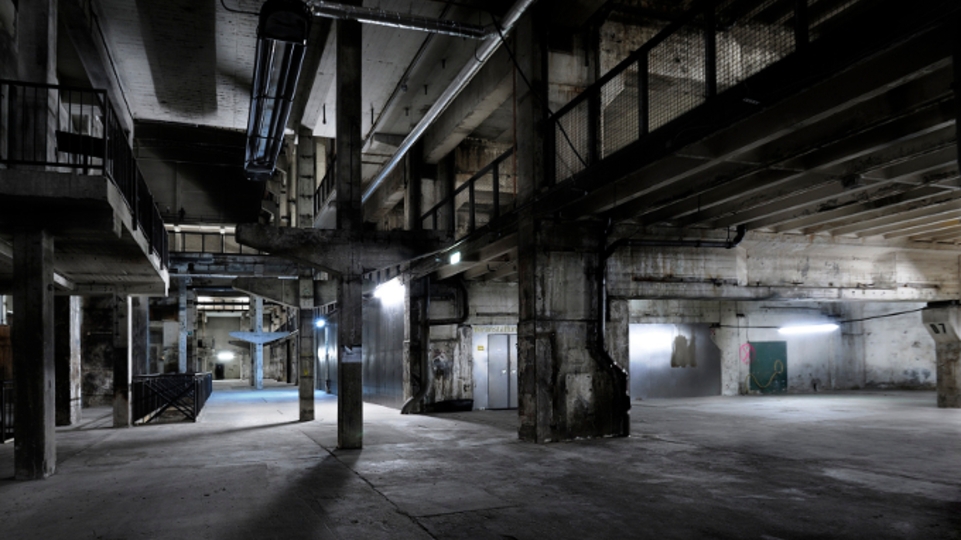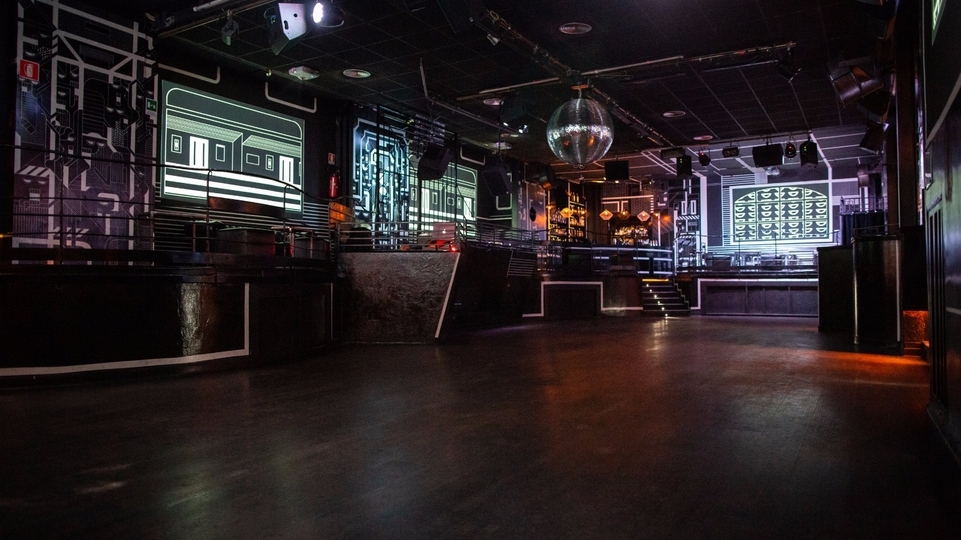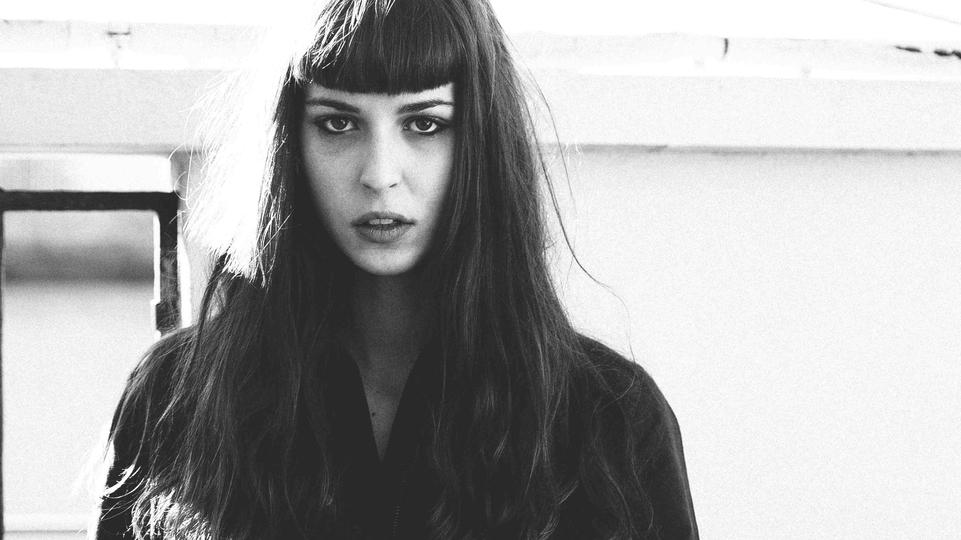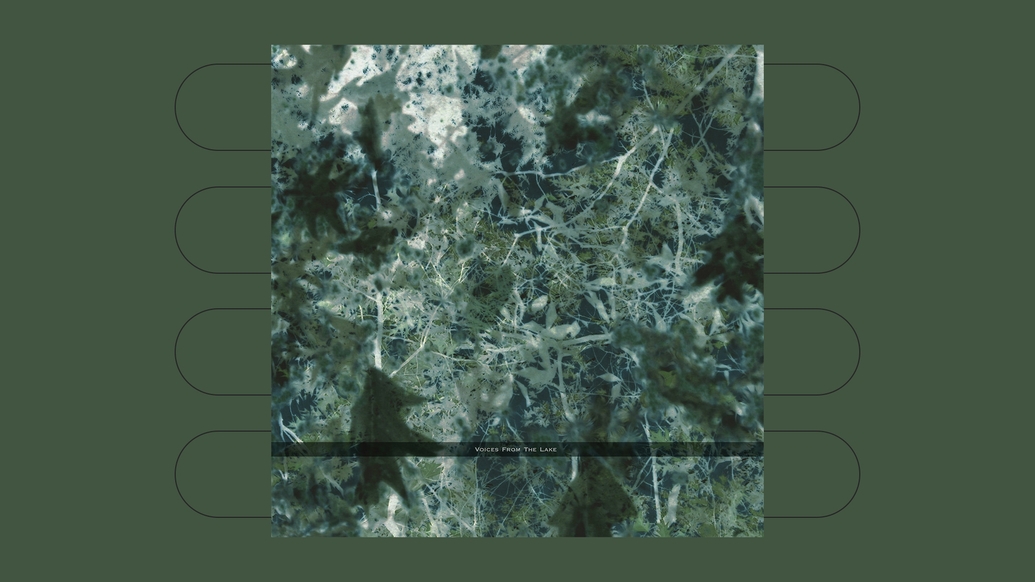
How Voices From The Lake reshaped ambient techno
First released in 2012, Donato Dozzy and Neel’s groundbreaking self-titled album as Voices From The Lake changed the landscape of ambient techno, and set a new course for minimalist electronic music. Rob McCallum learns how the ripple effects of its legacy are still being felt like a pulsating torrent today
It’s late summer 2011, and Italian artists Donato Dozzy and Neel are nearing the end of a three-hour drive spent listening to material they’ve recorded for an upcoming live show at The Labyrinth festival in Japan. The pair initially only intended to drive around the Grande Raccordo Anulare motorway that encircles Rome, but having barely uttered a word to each other since setting off, they are just arriving in Pescara on the eastern coast of Italy — some 200km away from where they started.
Focusing on the minutiae of the music through the nine-speaker Bose sound system in Dozzy’s Mercedes, the drive follows an intensive period of live jamming and recording, attempting to tease out a composition that sonically represents the mystifying energy of The Labyrinth. “We concluded that the mix was wrong,” Dozzy smiles, recalling the story over 10 years later in London. “[The car] was very good for deep listening. That night was crucially important, and we still remember how crazy it was.”
With the festival just two weeks away, the duo return to Rome the next day and head straight back into the studio. What begins as a rework of the mixdown sees the pair almost entirely change the recording and its structure. “The music was good,” Neel explains, pouring a cup of tea as he sits beside Dozzy. “But it was not for our purpose.”
The final version of the live recording eventually formed the backbone of the self-titled debut album under their collaborative alias, Voices From The Lake. The hypnotic long-player is a deeply complex feat of sound design that slowly unfurls over its 70-minute duration. A masterfully paced record of contradictions, ‘Voices From The Lake’ feels both texturally dense and delicately sparse. Re-released in an almost two-hour format for its 10th anniversary in March last year, it has become a cornerstone of ambient techno, with the carefully constructed, organic world it presents redefining what an album in that field can be. It’s a record with such a lasting legacy that the ripple effects of its release are still being felt like a pulsating torrent today.
The album’s meticulous recording process saw the pair lay down a vast amount of music. “95 fucking GBs!” Dozzy proclaims. “That’s a lot. But we were extremely picky with the material we recorded.”
“Every experience was useful in the making of it,” Neel explains, “which was so intense, complex, multi-phased.” In the final run-up to the festival, the pair endured sleepless nights to finish the process. “There was no night, no day. But this is related to [our] age at that moment. Now I couldn’t do something like it,” Dozzy smiles.
The pair say the album, which was initially performed just once (until 2022), tells a story of The Labyrinth, at the time set in a forest beside a lake. “It tells about the spirits of Labyrinth,” Dozzy explains. “Because we have spirits at The Labyrinth that are hidden in the mountains and watch over us. We built the whole album with The Labyrinth in mind.” Recorded as one continuous composition, ‘Voices From The Lake’ is split into chapters, with each ‘track’ portraying a different element of the festival, “the combination of them making the whole story,” Neel says.
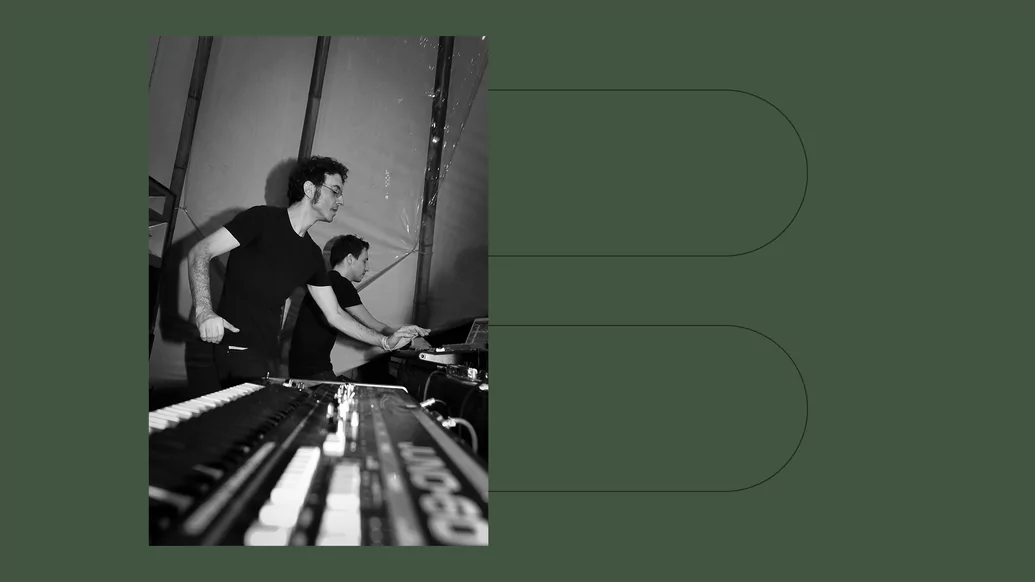
“It’s a balance between the space and silence. Every time you listen it can present something new.” – Neel
Dozzy (real name: Donato Scaramuzzi) and Neel (Giuseppe Tillieci) first met at Brancaleone in Rome. The club and cultural centre has served as a hub for sounds that exist on the periphery of the city’s electronic music scene since opening in 1990. Dozzy started a residency at the venue in ’99, shortly before Neel moved to Rome to study sound engineering. “Places like these were centres of counterculture,” says Dozzy. “And we owe so much to this experience. This was our roots. This is where our collaboration has its foundation.”
“It was a place where the music was the lead,” agrees Neel. “For me, it was not [just a] club. It was the laboratory.” As well as his weekly visits to the space — where the pair say artists felt free to experiment in front of an attentive crowd — Neel spent time working at a local record store. “I was surrounded by music all day,” he explains. “Either listening to music for me to play or buying records for the shop. And that was life.”
“Rome was leading many things at that time,” Dozzy adds. “We were all so lucky, because we had this platform. If I had to grow up with just official clubs, I probably wouldn’t do the career I have; if I wasn’t able and free to play the music I wanted.”
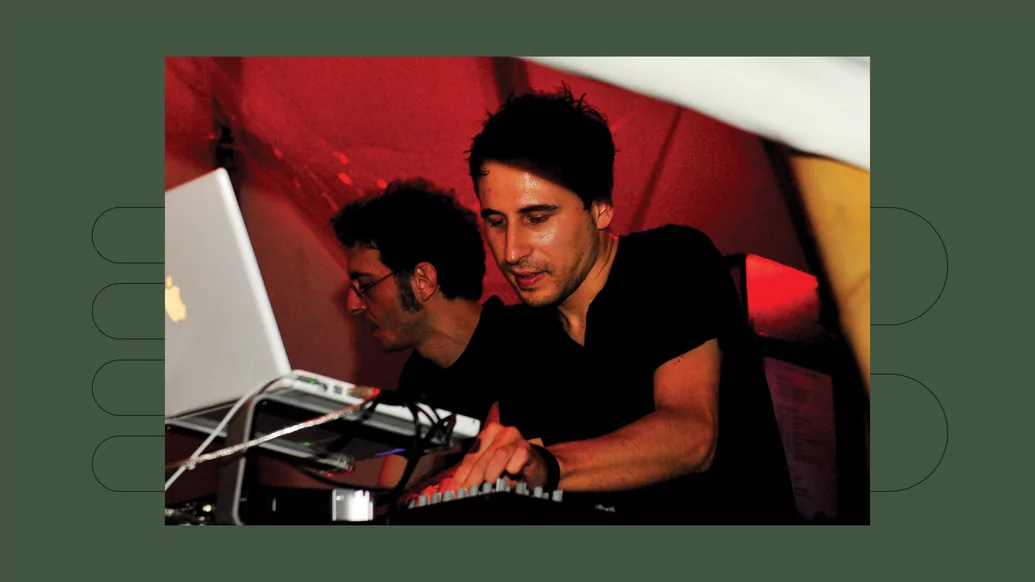
Dozzy moved to Berlin in 2003, where he set up his first proper studio, and took up a residency at Panorama Bar, becoming famed for his extended closing sets. The pair had already been “making experiments with synthesisers” together in Rome, and they continued this process as Neel took regular trips to stay with Dozzy, unknowingly laying the foundations for their sound as Voices From The Lake. “At the time it was like two kids playing,” Neel explains.
“But that’s how things got deeper,” Dozzy adds. “At Panorama Bar you could play music more [fitting] to the afternoon when people were already tired from the day before — in a different conscious state. So our music was fitting more and more to these situations. This building period was very important to shaping the sound.”
The pair were listening to and playing music by artists exploring the use of space and minimalism in electronic music, including Cio D’Or, Peter Van Hoesen, The Future Sound Of London, and Emmanuel Top, as well as the avant-garde compositions of musicians like Franco Battiato. During this time, they also discovered the deep and abstract works of American DJ/producer Mike Parker, an artist Dozzy would go on to collaborate with in 2007 (coincidentally, the first year he played The Labyrinth, which he says was a turning point in his career).
“Mike really shaped the dimension of the sound,” Dozzy enthuses. “He’s able to make a piece of minimalist art, but in a way that you feel the space. [This was] another fundamental part of our music formation.”
“He’s able to fill a full spectrum with just two or three sounds,” Neel agrees. “That’s very rare. Very difficult. And he does it, just, naturally.”
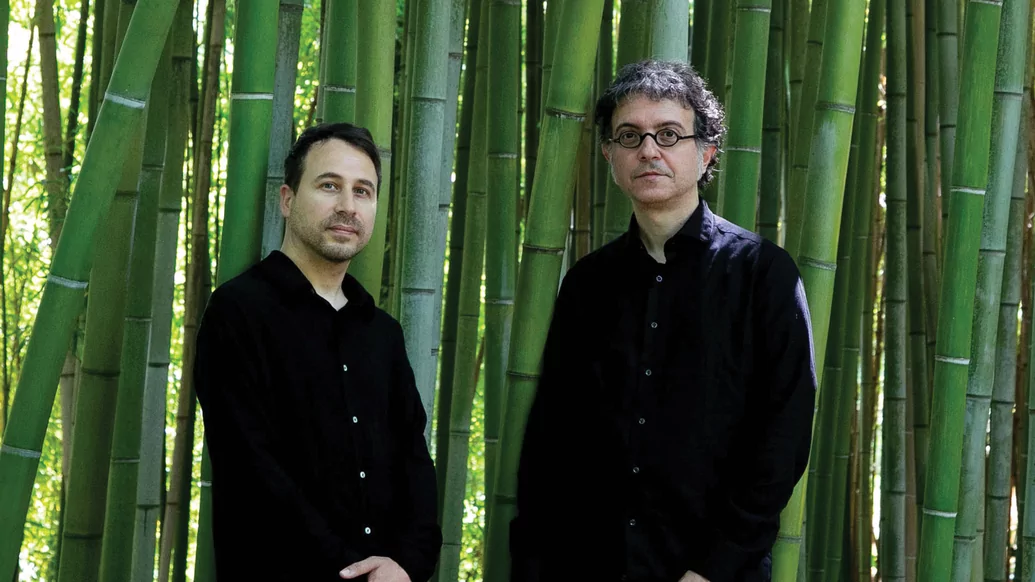
In spring 2010, Dozzy got married beside the lake in Sabaudia, a small town in the Lazio region of Italy. Attended by many artists they had befriended over the years, Neel performed a set in the small hours of the following morning, which was eventually cut short by a huge storm. Moved by the experience, he recorded a tape the next day as a gift for Dozzy and his then-wife, artist and designer Koto Hirai, which he titled ‘Voices From The Lake’.
The pair’s debut release under the name was the four-track ‘Silent Drops’ EP on Prologue in 2011, which would help form the sound of the much- loved, now-defunct German label. When they were booked to play The Labyrinth later that year, they set to work on what would become their magnum opus as a duo.
Expanding on the sonic palette of the first EP, the material for ‘Voices From The Lake’ was recorded at Dozzy’s studio in Rome after he’d moved back to the city. The process used a combination of analogue, modular and digital gear, including a Buchla, an Elektron Octatrack sampler, and outboard gear like the Lexicon PCM and Eventide processors, all recorded into Dozzy’s iMac Pro. As The Labyrinth used a Funktion-One sound system, he also installed one in his studio to ensure they knew exactly how it would sound at the festival. “I needed a soundproof room to make it work,” he laughs. “Otherwise, the whole building would complain.”
“That was truly the age where we loved processing sounds,” Neel explains. “Recording and treating and treating and slowly evolving a sound into something else. And [working] this way, you go in really unconventional [directions], because maybe you use a tom and change it to be a hi-hat — filtering in and out, harmonising stuff; just experimenting. We were struggling sometimes because we were processing so much. We had tonnes and tonnes of projects and folders, and when we were listening we’d be like, ‘Ah! We should change something on this’, but we’d completely forget what the source was.”
“We were really focused on our discovery,” Dozzy agrees. “That’s what really made this piece of music big.” Throughout ‘Voices From The Lake’, the pair show a commanding use of minimalist structures and sparsity as an instrument. “It’s a balance between the space and silence,” Neel explains. “Every time you listen it can present something new.”
“It was regarding where we were going to perform, because we really know the environment,” Dozzy continues. “It’s made for a forest. If you are in a forest, and you watch all the plants, they will always be in the same place. But every time you see them, you will spot something different. That’s how it works. Every time you listen back you can discover other sounds.”
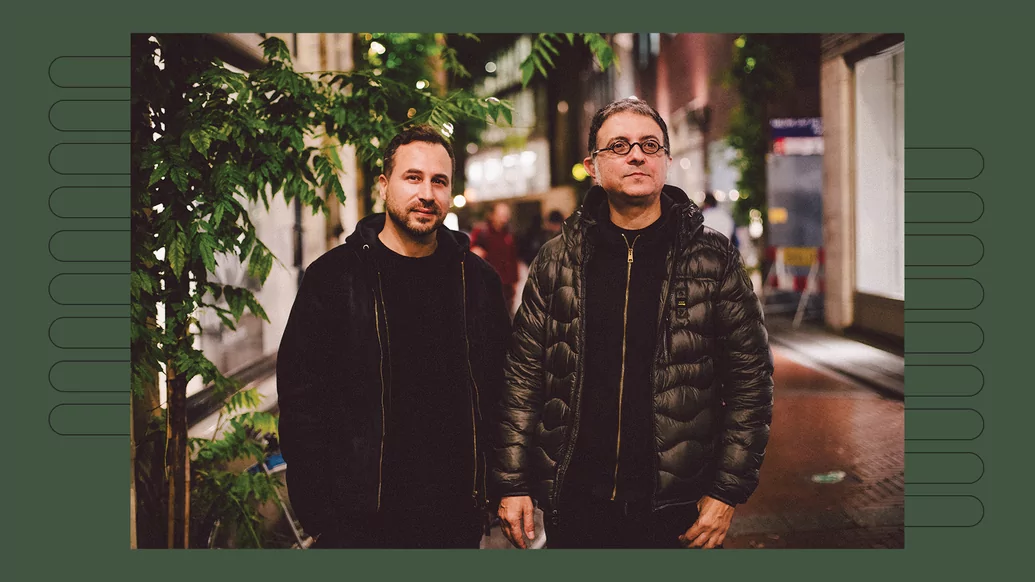
The pair say they still remember the night they first performed ‘Voices From The Lake’ in 2011. “We were pretty nervous,” recalls Dozzy “Because we put so much work into [getting] it done. The night was beautiful. There was a full moon. So the spirits of Labyrinth were very awake in that moment. I remember everyone being fully immersed with the sound. Joyful. Emotional. Very grateful. There were people crying. Someone was praying.”
But it was only after the performance that they realised the magnitude of what they had accomplished. They sent the final version of the recording to Prologue founder, Tom Bonaty, who they say begged them to release it. The label put it out in February 2012 as a 3xLP package with cover art designed by Koto Hirai.
Both artists grew up by the coast, Dozzy in Sabaudia and Neel further south in Curinga in the region of Calabria, and the music on the final version elicits the same deeply relaxed state that being beside a large expanse of water can create. The album feels weightless, existing in a liminal space that sounds not quite of this world — on a different sonic plane to much that had come before it, or has been released since. The pair say the response to the album was “overwhelming”, and went on to put out a series of EPs, as well as another live recording, titled ‘Live At MAXXI’. The most recent material was released through the label they co-founded together, Spazio Disponibile, which is also a vehicle for their solo work and music by a range of artists orbiting their sound.
Their output as Voices From The Lake had slowed down in order to focus on their own careers until returning to perform the album live again in 2022, including appearances at Terraforma and Berlin Atonal. Last year, they continued to play live shows, road-testing unreleased material at events including Dekmantel, STOOR live at Amsterdam Dance Event, and Nuits Sonores. “When we meet, we can’t just stay quiet,” Dozzy smiles, explaining that their process is quite different to when they worked on their self-titled LP. “We don’t have that time,” he laughs.
They say the story of ‘Voices From The Lake’ is, ultimately, one of a decades-long friendship. “We knew it was nice,” Dozzy continues. “But we would never think this is what’s going to be a timeless record. A career defining one.”
“The most beautiful thing, for me, is the process of making,” Neel explains. “All the moments that we were together. It makes me really smile.” “We look back at it with happiness,” Dozzy concludes. “Always.”
